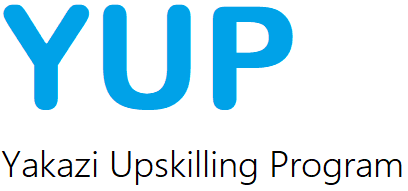Understanding Labor Laws for Technical Professions in Kenya: Key Insights

In Kenya, labor laws are essential for safeguarding the rights of workers across all sectors, including technical professions. Whether you’re an engineer, software developer, IT professional, or working in another technical field, it’s crucial to understand the legal framework that governs employment, wages, workplace conditions, and employee benefits. As the tech industry grows rapidly in Kenya, workers in technical roles need to be aware of the specific labor laws that affect their careers. In this article, we’ll explore the labor laws relevant to technical professions in Kenya.
1. Wages and Compensation
Kenya’s labor laws regulate the payment of wages to ensure that employees are compensated fairly for their work. According to the Employment Act, 2007, all employees, including those in technical fields, are entitled to timely and fair wages. The laws stipulate that:
- Minimum Wage: The Kenyan government periodically sets the minimum wage, which is legally binding for all employers. While the minimum wage is not always directly applicable to highly skilled technical workers (who may earn above the threshold), it sets a baseline for fair compensation in the country.
- Overtime Pay: In Kenya, workers are entitled to overtime pay if they work beyond the normal working hours. Typically, the standard workweek is 40 to 48 hours, and overtime is paid at 1.5 times the regular hourly rate for work on weekdays and double the hourly rate for work on weekends or public holidays. It’s essential for technical professionals to be aware of their rights to overtime pay, particularly if they are in roles with extended working hours.
2. Employee Contracts
The Employment Act, 2007 requires that all employees in Kenya, including those in technical professions, be provided with a written contract. The contract should outline the terms of employment, including job responsibilities, working hours, remuneration, and benefits. It’s essential to have clarity on the following aspects:
- Fixed-Term vs. Permanent Employment: Many technical professionals work on fixed-term contracts, particularly in project-based roles. It’s important to understand the terms of contract renewal and termination, as well as any severance pay provisions that may apply if the contract is not renewed.
- Probation Period: New employees often undergo a probationary period. During this time, either the employer or employee can terminate the contract with minimal notice, typically one week, depending on the terms outlined in the employment contract.
3. Workplace Safety and Health
Workplace safety is an essential part of labor law in Kenya. The Occupational Safety and Health Act (OSHA), 2007, mandates employers to provide a safe working environment for all employees, including those in technical professions. This includes:
- Ergonomic Workspaces: For technical workers who spend a significant amount of time working at desks or on computers, employers are required to provide ergonomic equipment to avoid injuries like back pain or repetitive strain injuries.
- Safety in Physical Work Environments: For professionals in technical fields like engineering or construction, the employer must ensure that the workplace adheres to safety standards. This includes providing protective gear and ensuring that health and safety protocols are in place to prevent accidents.
4. Intellectual Property and Confidentiality
Intellectual property (IP) laws are especially important for technical professionals involved in creating software, designs, or technological innovations. In Kenya, the Industrial Property Act, 2001, and the Copyright Act, 2001 govern the ownership of intellectual property.
- Ownership of Work: If you are employed in a technical role, any intellectual property (such as software, inventions, or designs) that you create during the course of your work may belong to your employer. However, this should be clearly outlined in your contract, and you should be aware of your rights regarding ownership of any intellectual property created outside of your employment.
- Non-Disclosure Agreements (NDAs): Many employers in the tech industry require employees to sign NDAs to protect company secrets. These agreements prevent employees from sharing sensitive information or taking it to competitors after leaving the company. It’s important to fully understand the terms of any NDA before signing.
5. Anti-Discrimination and Equal Opportunity
Kenya’s labor laws, as laid out in the Employment Act, 2007, prohibit discrimination based on race, gender, age, disability, and other protected attributes. This applies to all employees, including those in technical professions. The laws ensure that:
- Equality in Employment: Employers must provide equal opportunities to all employees, regardless of gender, disability, or other personal attributes. The Kenyan government and various organizations are working to improve gender representation in technical fields, where women are often underrepresented.
- Disability Rights: The Persons with Disabilities Act, 2003 requires employers to provide reasonable accommodations for employees with disabilities. This could include making adjustments to the workplace or providing assistive technology for employees in technical roles.
6. Contractual Employment and Freelance Work
With the rise of freelance and contract-based work in technical fields, it’s important to understand the legal distinctions between employees and independent contractors in Kenya. The Employment Act, 2007 outlines the rights of contract workers, but there are some key differences for freelancers:
- Freelancer Agreements: Freelancers, especially those in IT and software development, should have clear written agreements that specify payment terms, deadlines, and ownership of work. These contracts ensure that the freelancer is compensated fairly and is protected if there are disputes.
- Taxation: Independent contractors in Kenya must handle their own taxes. This includes paying both the employer’s and employee’s portion of social security contributions (National Social Security Fund, NSSF) and tax (Pay-As-You-Earn, PAYE).
7. Leave and Benefits
Kenya’s labor laws provide for several types of leave for all employees, including those in technical professions:
- Annual Leave: The Employment Act mandates that employees are entitled to at least 21 days of paid annual leave for every year worked. Technical professionals should ensure they are taking their entitled leave for work-life balance.
- Sick Leave: Employees are entitled to sick leave after serving a probationary period. The amount of paid sick leave depends on how long the employee has worked at the company.
- Maternity and Paternity Leave: Female employees are entitled to 90 days of paid maternity leave, while male employees are entitled to 14 days of paternity leave. These provisions are especially important in family-friendly workplaces.
Conclusion
Labor laws in Kenya provide robust protection for workers, including those in technical professions. Whether you’re a software developer, engineer, or IT specialist, understanding your rights under the Employment Act, OSHA, and other relevant regulations is essential to navigating your career successfully. Employers must ensure that they adhere to these laws, and employees should familiarize themselves with their rights to protect their interests. As Kenya’s tech industry continues to grow, staying informed about labor laws will help ensure fair treatment, safe working conditions, and the protection of intellectual property for technical professionals.

